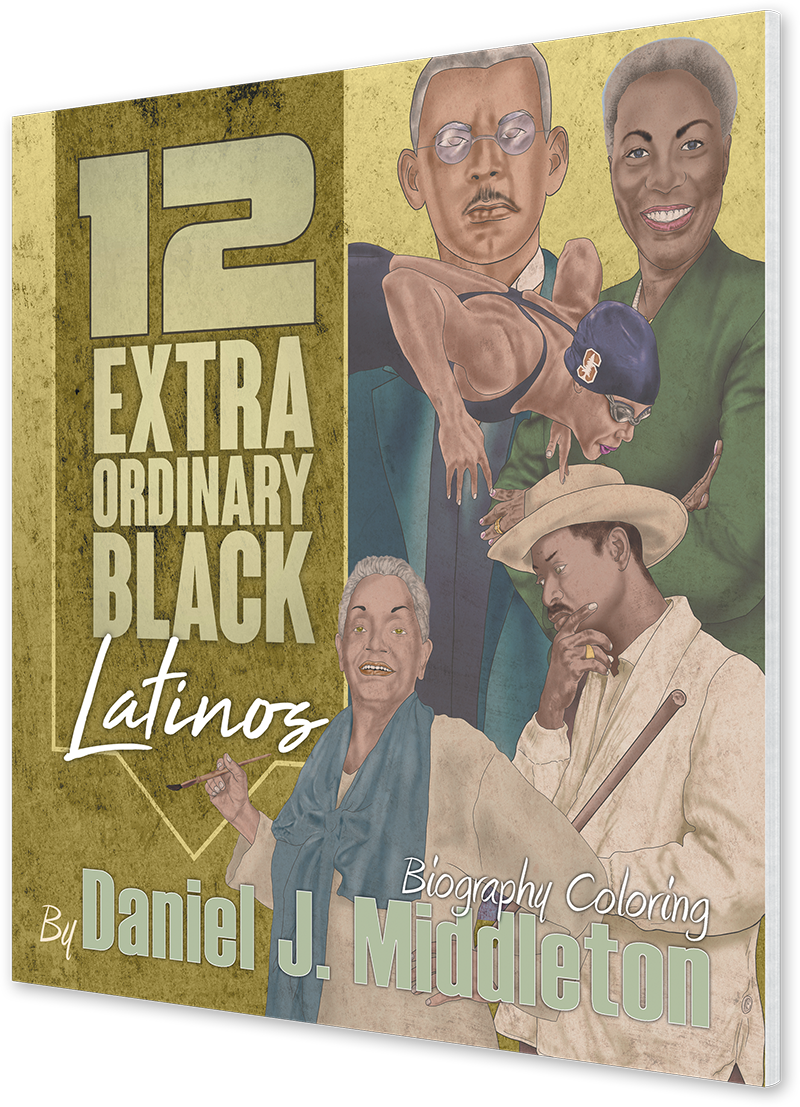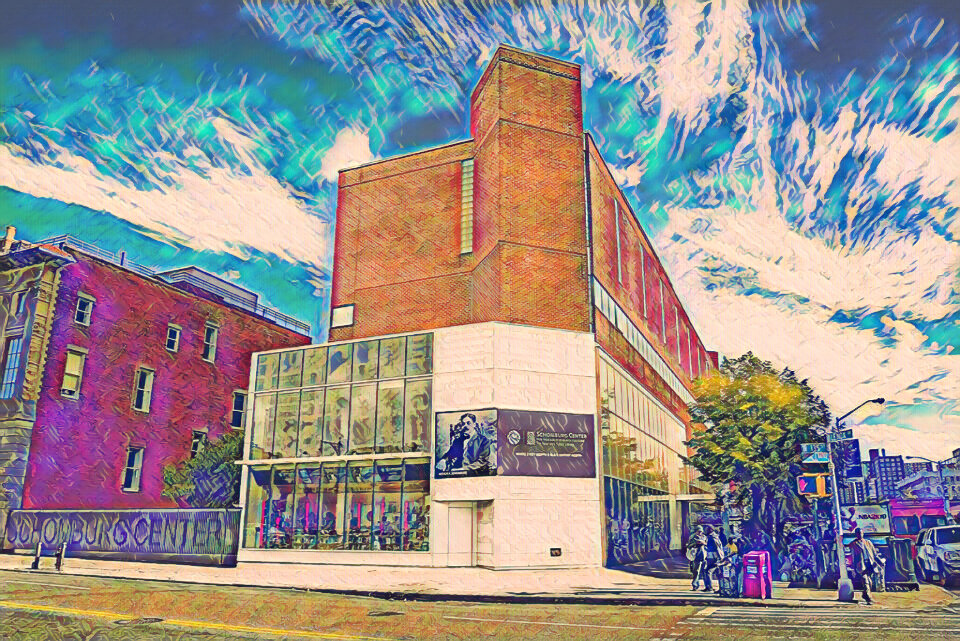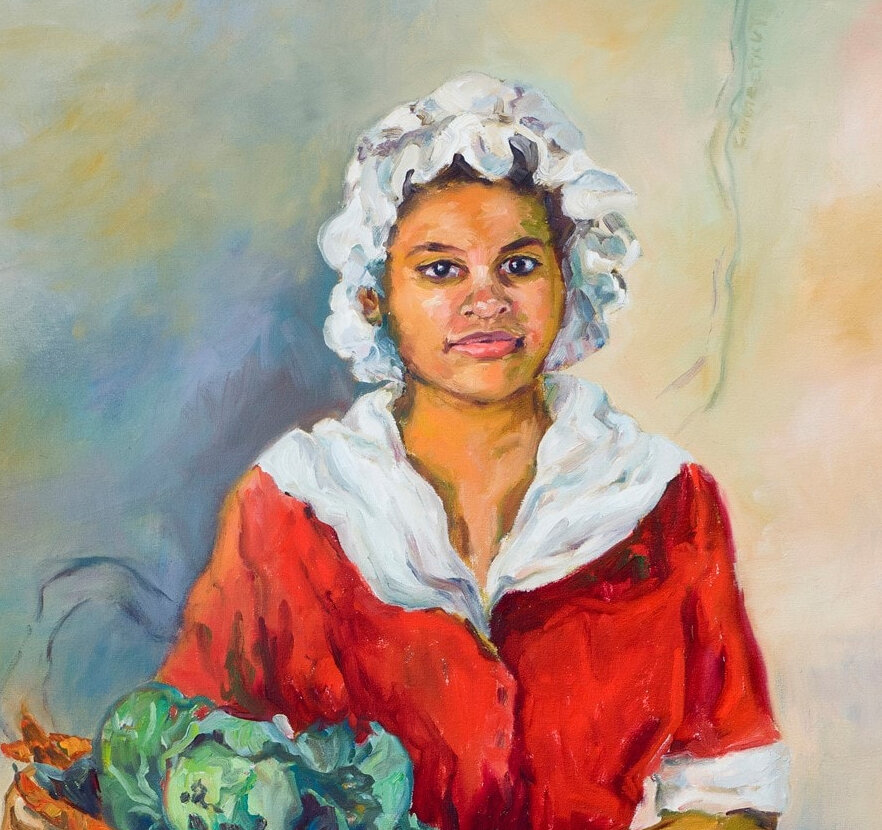Arturo Schomburg
The Preeminent Black History Preservationist
Portrait of Arturo Schomburg, © by Unique Coloring.
Arturo Schomburg was an Afro-Puerto Rican historian, activist, and writer who figured prominently in the Harlem Renaissance. When Arturo was in fifth grade, a teacher told him that black people had no history, noteworthy individuals, or accomplishments. Arturo set out to prove her wrong and spent the rest of his life researching and preserving black history by collecting literature, artwork, slave narratives, and materials related to the African Diaspora. In 1926, the New York Public Library—with the help of the Carnegie Corporation—purchased Arturo’s vast private collection for $10,000. It eventually became the Schomburg Center for Research in Black Culture, a significant research library in Harlem, New York.
Portrait of Arturo Schomburg. Illustrated by Daniel J. Middleton.
Arturo Alfonso Schomburg was born in Puerto Rico on January 24, 1874. His father was a Puerto Rican merchant with German roots, and his mother was Afro-Caribbean, hailing from the Danish West Indies (now the U.S. Virgin Islands). Arturo grew up in Puerto Rico and attended school there. He also studied in the U.S. Virgin Islands. At age 17, Arturo emigrated from Puerto Rico to New York City and became active in local politics. He advocated for Cuban and Puerto Rican Independence and, in 1892, co-founded Las Dos Antillas (The Two Antilles), a political club that supported the cause.
To support himself, Arturo clerked for several law firms and trust companies during the early 1900s. He later became the supervisor of the Bankers Trust Company’s Caribbean and Latin American Mail Section. During this period, his dedication to preserving black history never waned. Recalling the incident with his fifth-grade teacher at the primary school in San Juan, Arturo co-founded the Negro Society for Historical Research in 1911. He created archives available to members and anyone interested in African, West Indian, and Afro-American history. Arturo, stating the society’s aim, said:
“We need the historian and philosopher to give us with trenchant pen, the story of our forefathers, and let our soul and body, with phosphorescent light, brighten the chasm that separates us. We should cling to them just as blood is thicker than water.”
The Schomburg Center for Research in Black Culture—Harlem, New York.
Arturo successfully amassed a historical collection documenting black achievements that totaled 10,000 items. It included poetry by Phillis Wheatley, the journals of Paul Cuffe, newspapers published by Frederick Douglass, the correspondences of Toussaint Louverture, original compositions by Chevalier de Saint-Georges, and many books. All the research highlighted the lofty intellectual, artistic, and cultural heights blacks had often ascended.
Arturo also put pen to paper by writing several black history articles for black publications, including Negro World, Opportunity: Journal of Negro Life, The Crisis: A Record of The Darker Races, The New York Amsterdam News, and others.
Arturo spent a year at Fisk University in Nashville, Tennessee. He served as curator of the Negro Collection at the library. In 1932, he returned to New York and became curator of the collection he sold to the New York Public Library, a position he held until June 8, 1938, the day he died.
You may also be interested in:

This article appears in 12 Extraordinary Black Latinos.
Available from Amazon.com, BN.com, and other retailers.





José Celso Barbosa became the first Puerto Rican to earn a medical degree in the U.S. After practicing medicine for decades in his country, Barbosa emerged as a leading politician.